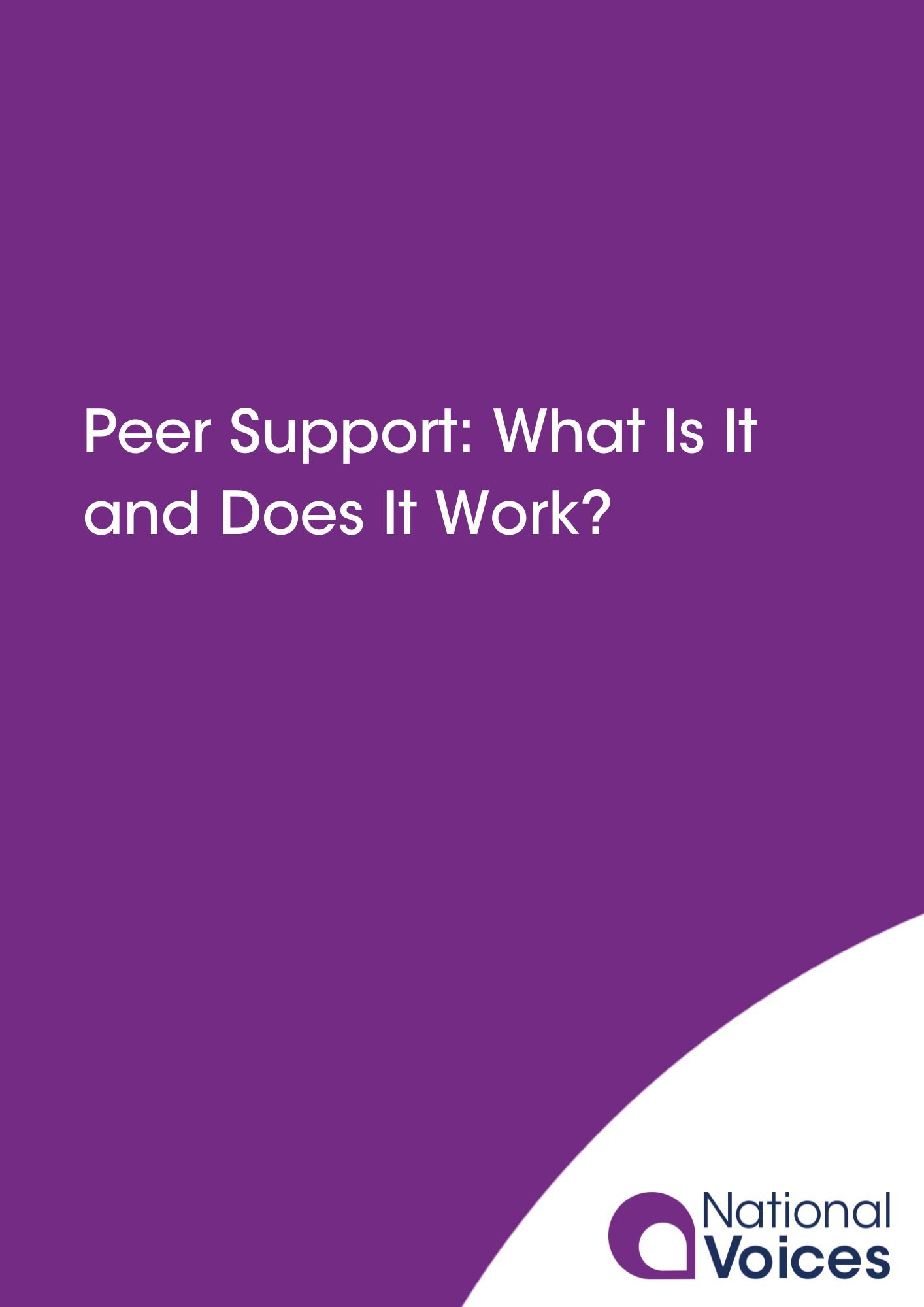
Peer Support: What Is It and Does It Work?
- Online Peer Support
- Person-centred care
The report also shows that there is a limited understanding of the different forms of peer support, how best to deliver support and the forms of training and infrastructure to get the most impact from it; so, further evidence is needed to fully understand the impact it has on the health service and individuals with long-term health conditions.
Peer support involves people sharing knowledge, experience or practical help with each other. Many voluntary and community groups encourage peer support. Health and social care commissioners are beginning to recognise the potential benefits.
We compiled information from more than 1000 studies to help organisations and commissioners make decisions about investing in peer support. We found that peer support can take many forms, such as informal telephone calls, group get-togethers, online forums or structured training offered by paid peers in partnership with professionals
The most promising types of peer support appear to be:
- face-to-face groups run by trained peers which focus on emotional support, sharing experiences, practical activities and education
- one-to-one support offered face-to-face or by telephone
- online forums, particularly for improving knowledge and anxiety
- support offered regularly (such as weekly) for three to six months
If you would like to read this summary in an alternative format, please get in touch.